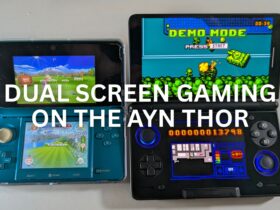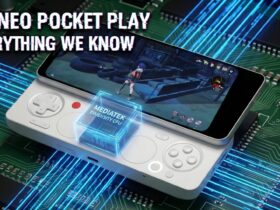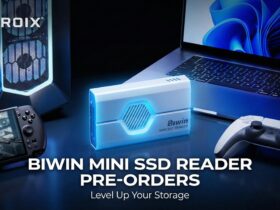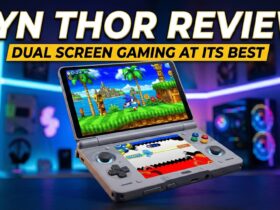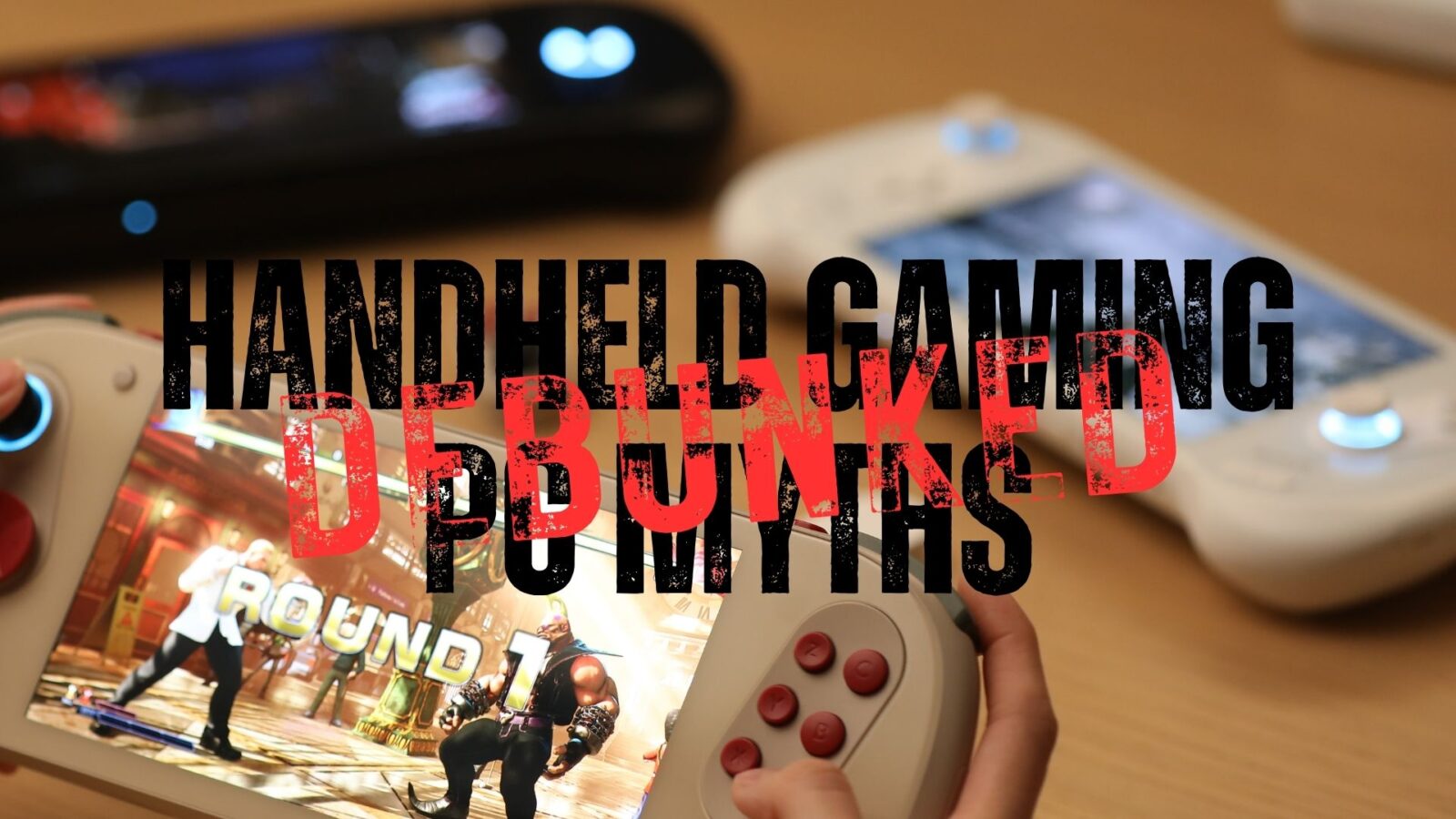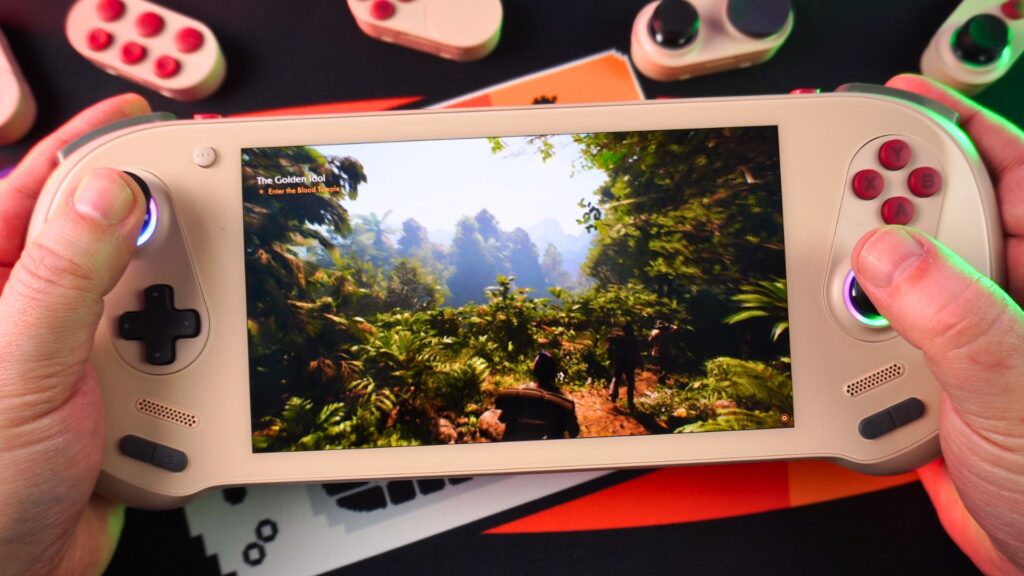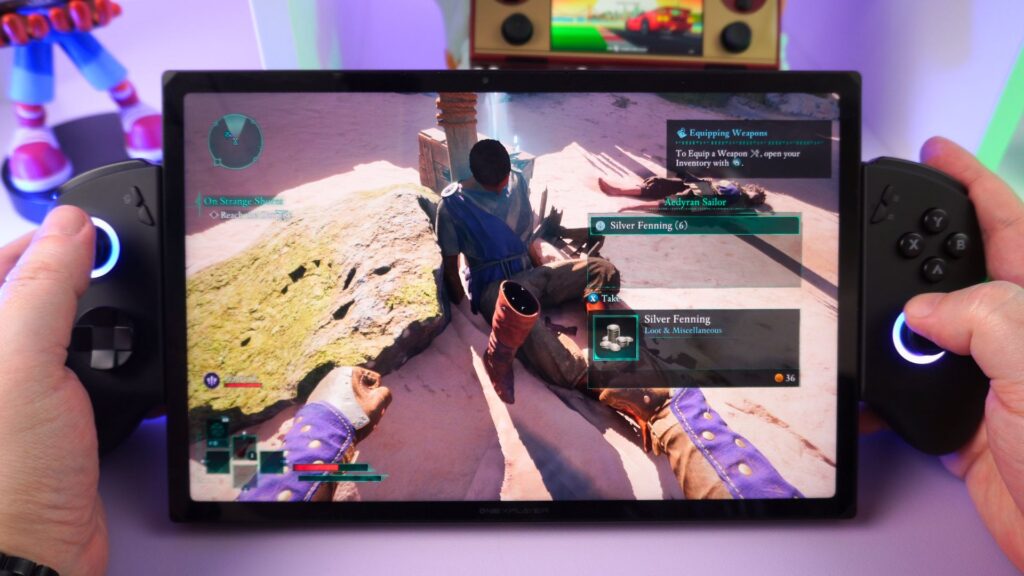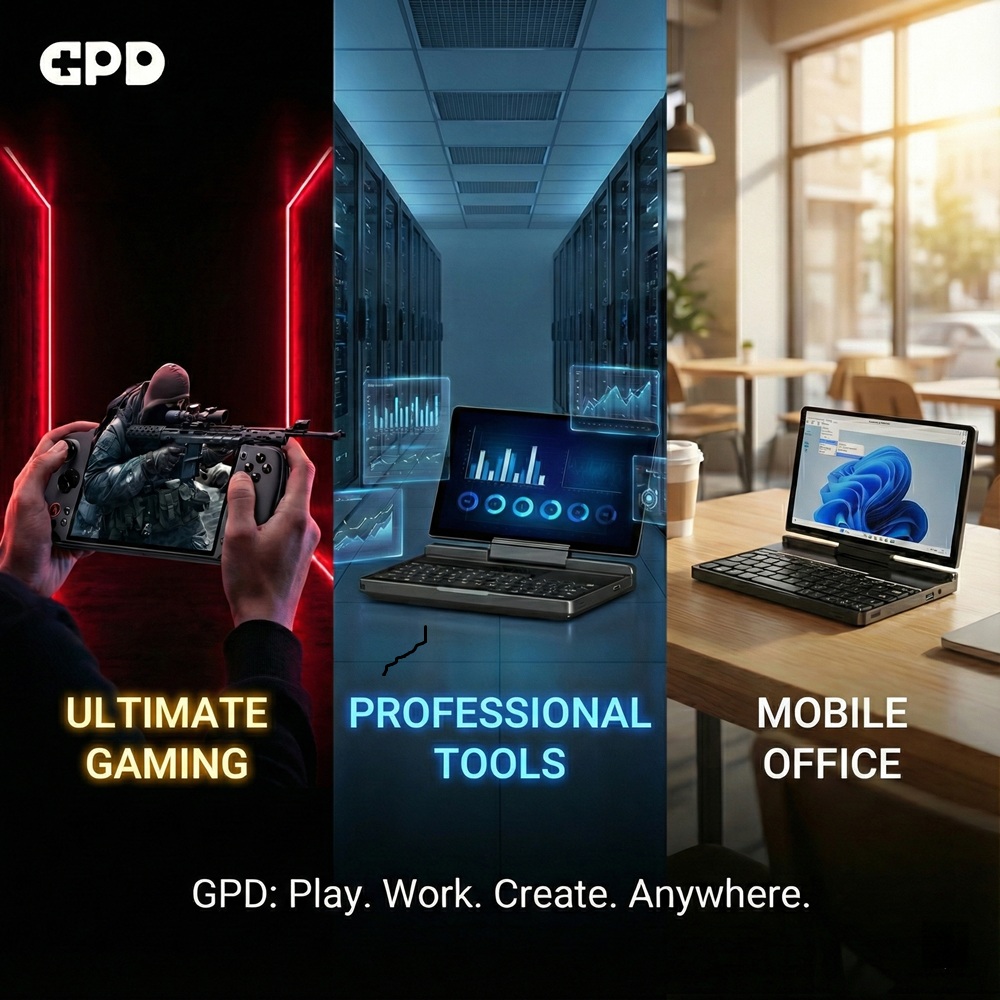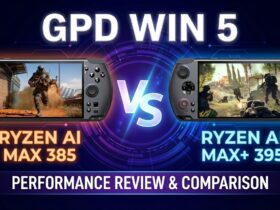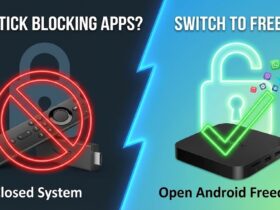For years, the notion of truly powerful gaming on the go conjured images of bulky laptops, a far cry from the sleek portability we often desire. The perception lingered that portable gaming PC performance would always be a shadow of its desktop counterpart. But the landscape has dramatically shifted. A new generation of devices, spearheaded by innovators like GPD, ONEXPLAYER, AYANEO and Valve, is challenging these long-held beliefs. Let’s dive into the truth with handheld gaming PC performance myths debunked surrounding the power packed into these handheld gaming computers.
Myth #1: “Handheld Gaming PCs Can’t Run ‘Real’ Games”
Cast aside the notion that portable gaming PC devices are limited to indie titles and less demanding games. The reality is that devices like the Steam Deck, GPD WIN 4 2025 and the AYANEO 3 are capable of running a surprising number of modern AAA titles. While you might not always be cranking every setting to maximum, the experience is often remarkably smooth and enjoyable.
These handhelds are capable of playing the latest demanding games like Indiana Jones and the Great Circle and Avowed. Through to older but still demanding games such as Cyberpunk 2077 or Forza Horizon 5 on the ONEXPLAYER ONEXFLY F1 Pro – these mobile gaming PC units pack enough processing and graphical punch to deliver respectable frame rates and visual fidelity, proving that “real” gaming is absolutely achievable in your hands.
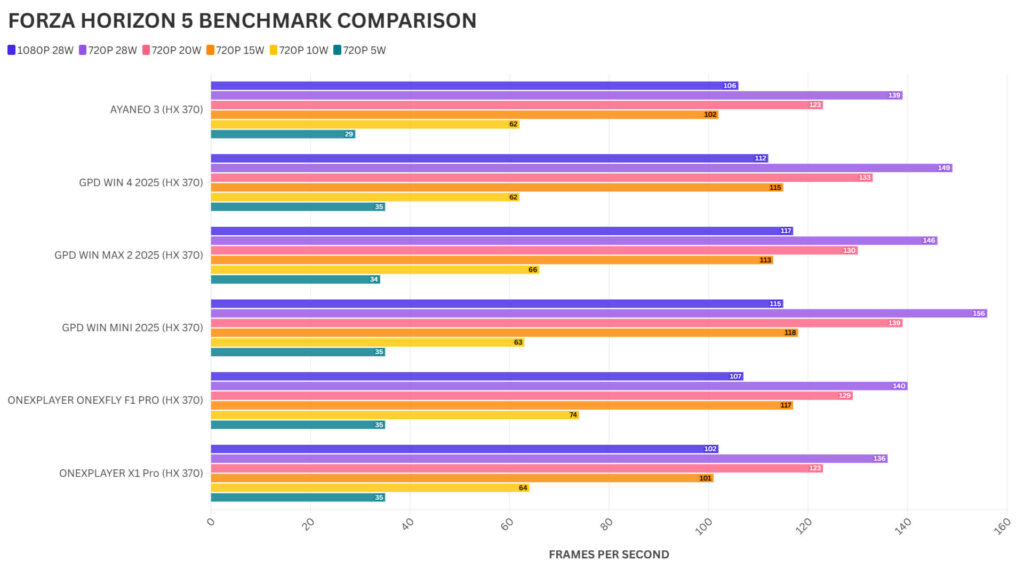
Myth #2: “The Experience is Always Compromised (Small Screen, Cramped Controls)”
While screen size is inherently smaller than a desktop monitor, the advancements in display technology on these handheld gaming computers are significant. The vibrant, high-resolution and refresh rate screens found on devices like the GPD WIN Mini 2025 (7″ 120Hz) and the ONEXPLAYER X1 Pro (10.95″ 120Hz) offer a crisp and immersive visual experience, or you could go with the AYANEO 3 with its 7″ OLED up to 144Hz for the ultimate in portable display technology.
Furthermore, ergonomic design has become a key focus. Many modern portable gaming PC units boast well-placed buttons, comfortable grips, and responsive analog sticks, allowing for surprisingly comfortable and precise control, even during extended play sessions. And for those who desire a more traditional setup, the option to connect to external displays and controllers is readily available, offering the best of both worlds.
Want to know more about these handheld gaming PCs?
You can find full text reviews as well as videos if you prefer watching rather than reading on our blog
| HANDHELD | BLOG REVIEW | VIDEO REVIEW | BUY |
|---|---|---|---|
| AYANEO 3 | AYANEO 3 Review | AYANEO 3 Review Video | HERE |
| GPD WIN 4 2025 | GPD WIN 4 2025 Review | GPD WIN 4 2025 Review Video | HERE |
| GPD WIN Mini 2025 | GPD WIN Mini 2025 Review | GPD WIN Mini 2025 Review Video | HERE |
| ONEXPLAYER ONEXFLY F1 Pro | ONEXPLAYER ONEXFLY F1 Pro Review | ONEXPLAYER ONEXFLY F1 Pro Review Video | HERE |
| ONEXPLAYER X1 Pro | ONEXPLAYER X1 Pro Review | ONEXPLAYER X1 Pro Review Video | HERE |
Myth #3: “Battery Life Makes Them Impractical for Serious Gaming”
Battery life is undoubtedly a consideration for any mobile gaming PC. However, significant strides have been made in battery technology and power management within these devices. While marathon gaming sessions on the most demanding titles will naturally drain the battery, many handheld gaming computer units, such as the AYANEO 3 and the GPD WIN 4 2025, offer respectable playtime for typical gaming sessions. With the latest AMD Ryzen AI 9 HX 370 models you can expect 3-6 hours on average settings and around 1 hour with everything cranked to the maximum.
Moreover, features like power-saving modes allow users to prioritize battery life when needed. You also have variable TDP settings which you can for example lower from the standard 28W to just 5W TDP for the less demanding games. The increasing availability and portability of power banks also provide a practical solution for extending your gaming sessions on the go, making serious gaming on a portable gaming PC far from impractical.
Myth #5: “They’re Too Expensive for What They Offer”
Evaluating the cost of a handheld gaming computer requires considering its “all-in-one” nature. Devices like the ONEXPLAYER X1 Pro and the GPD WIN Mini 2025 aren’t just gaming devices; they are also capable Windows PCs that can handle productivity tasks, media consumption, and more. And even more so by connecting a keyboard and mouse, and a TV or monitor to transform it into a desktop like PC.
When compared to purchasing separate devices for these functions, the value proposition of a powerful and versatile compact gaming PC becomes clearer. You’re essentially carrying a portable entertainment center and a capable computer in your pocket. The convenience and functionality offered by these devices justify the investment for many users seeking a premium, all-encompassing mobile computing and gaming solution.
Final Thoughts: The Pocket-Sized Power Revolution is Here
The landscape of portable gaming has evolved dramatically, and the myths surrounding the performance of handheld gaming computers are increasingly outdated. Devices from AYANEO, GPD and ONEXPLAYER are proving that pocket-sized doesn’t have to mean power-compromised.
From running demanding PC titles to offering comfortable controls and decent battery life, these portable gaming PC units are delivering a truly impressive mobile gaming experience. The revolution of pocket-sized power is here, and it’s changing how we think about gaming on the go.
What are your experiences with the performance of modern handheld gaming PCs? Have you been surprised by what these compact gaming PC units can achieve? Share your thoughts and favorite games in the comments below!



